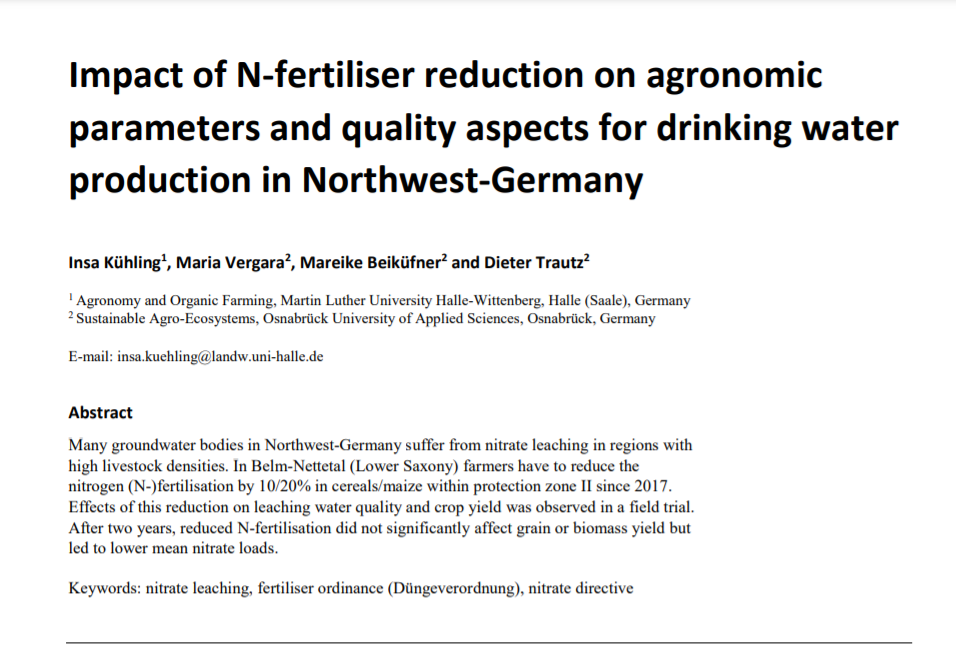Impact of N-fertiliser reduction on agronomic parameters and quality aspects for drinking water production

Many groundwater bodies in Northwest-Germany suffer from nitrate leaching in regions with high livestock densities. In Belm-Nettetal (Lower Saxony) farmers have to reduce the nitrogen (N-)fertilisation by 10/20% in cereals/maize within protection zone II since 2017. Effects of this reduction on leaching water quality and crop yield was observed in a field trial. After two years, reduced N-fertilisation did not significantly affect grain or biomass yield but led to lower mean nitrate loads.
The demand by the European Water Framework Directive of a good ecological and chemical water quality was not reached all over Germany. Specifically, the groundwater bodies in the north western part with high livestock densities suffer from nitrate leaching. Since nitrate concentrations >50 mg l -1 cause problems for drinking water supply, some production areas are protected by special regulations for reduced N-fertilisation strategies. Within the drinking water production area Belm-Nettetal (Lower Saxony, Germany) a project was launched to observe the effects of reduced Nfertilisation (-10/-20 % for cereals/maize) on leaching water quality.